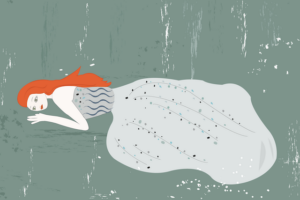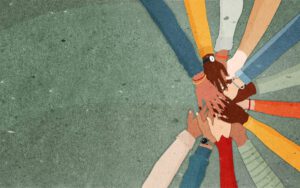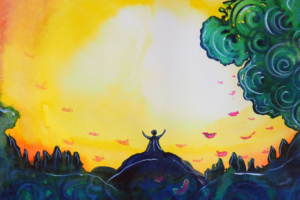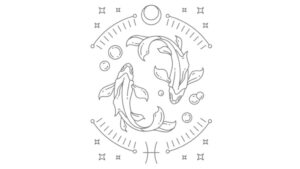What Occurred After I Stopped Blaming and Embraced Radical Accountability
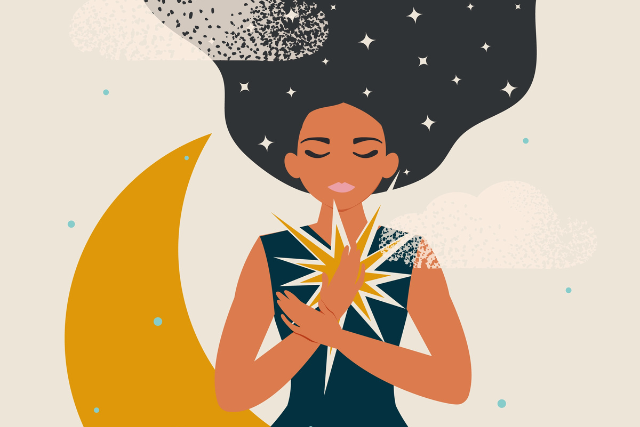

“I can respect any one that can put their ego apart and say, ‘I made a mistake, I apologize, and I’m correcting the conduct.’” ~Sylvester McNutt
I keep in mind I used to be a youngster after I went via this horrible breakup. I had by no means skilled heartbreak earlier than, and the ache was excruciating, impacting many areas of my life. For years, I blamed him for the top of our relationship and for not appreciating my love.
My pals instructed me it was his loss and that I deserved significantly better. I nursed that breakup for longer than obligatory. I by no means took accountability individually within the breakup and blamed solely him for the kind of particular person I grew to become—guarded, insecure, and afraid to like.
Years later, I noticed I had fallen into the widespread lure of the sufferer mentality that all of us expertise in some unspecified time in the future in our lives. To be sincere, I feel I felt like a sufferer until I used to be virtually forty.
I used to be younger, and I needed to undergo all the emotions of grief, betrayal, and disappointment to slowly heal through the years as a result of it all the time takes time, particularly when you’re not conscious or not able to admit that “Sure, I did play an element in what occurred and the way it made me really feel.”
That’s radical accountability. Radical accountability theorizes that we’re 100% accountable for our lives, emotions, and private development in response to occasions.
This may be misinterpreted as absolving others of accountability for his or her actions. Nonetheless, holding others accountable for his or her actions is a separate and essential course of. Radical accountability focuses on our personal inner responses and decisions whereas acknowledging the actions of others. It’s a signal of private development after we settle for our function in what occurred as a substitute of solely blaming others.
As an illustration, as a substitute of instantly reacting defensively in a battle, we are able to pause to look at our contributions to the scenario. Did I miscommunicate? Did I react impulsively? Did I mess up?
Understanding our function permits us to speak extra successfully and constructively resolve conflicts. In relationships, radical accountability encourages us to take possession of our wants and bounds, talk them clearly, and reply to challenges with self-awareness and compassion quite than assigning blame.
By embracing radical accountability, we start to know the precious classes that may be realized from even probably the most troublesome experiences. It was very difficult for my ego to confess that I had been unsuitable so many occasions and that it was not all the time different folks’s faults.
Experiencing the darkish phases in life is critical to develop and study that there’s extra to each story. It’s simple guilty others for every part that goes unsuitable in your life, and it occurs in all relationships, whether or not household, pals, coworkers, and even strangers. A few of us play the sufferer greater than others as a result of I do know I did and nonetheless do, and I’ve to consistently remind myself that I’m not an harmless bystander with no say or management within the scenario.
It’s simpler guilty others (“She’s horrible,” “Why me?”) than to look at my very own function within the scenario, acknowledging that I made decisions inside the context of my circumstances. It takes braveness to acknowledge previous behaviors like tolerating mistreatment to take care of approval, remaining silent out of worry, or prioritizing social acceptance over self-expression.
It doesn’t imply everyone seems to be on the market to get you or that each time you get damage, it is just your fault, however that when one thing occurs, we play an enormous function in what we do or really feel.
For many years, I noticed myself as a sufferer as a result of I instructed myself that it was all the time different folks’s fault when one thing went unsuitable in my life. I by no means wished to confess that I additionally performed a job on this. Initially, inspecting previous conditions and acknowledging my function wasn’t simple. It was painful to confess to myself that I made these errors and choices as a result of it’s all the time simpler guilty others and discover fault in anybody however myself.
My graduate faculty expertise was a main instance. I instructed myself I went there solely as a result of my then-boyfriend wished me to. I targeted on his driving me to and from lessons and his requests for fixed contact, framing these as controlling actions—which they had been.
However the fact, nevertheless painful to confess, was that I selected that faculty. I remoted myself from my classmates as a result of that was what he wished. He didn’t power me to do or not do something. They had been my choices, made in a determined try and salvage a relationship I feared shedding and to keep away from battle.
Acknowledging this fact and recognizing my function in creating my unhappiness was a protracted and troublesome course of.
At first, I discovered this self-examination troublesome. Nonetheless, the extra I analyzed my function in these conditions, the extra empowered I felt as a result of I realized how a lot management I’ve over the issues I do, say, and really feel shifting ahead.
Reflecting on my function in previous conditions offered useful classes for navigating future challenges. Acknowledging my accountability, regardless of exterior circumstances, introduced a way of freedom and a deeper understanding of my humanity. I felt this sense of freedom and reduction as a result of I had been carrying this burden for many years.
I do know myself extra as a result of I known as myself out on my decisions due to my fears and insecurities, and different folks might or might not have influenced my choices. Ultimately, I did that.
I knew I used to be rising up after I was in a position to admit my errors in entrance of different folks.
Accepting radical accountability doesn’t imply others gained’t attempt to affect you; it means you’re accountable for your responses. Radical accountability is a acutely aware act of private freedom during which we select to take a look at ourselves quite than all the time pointing fingers at others.
Embracing radical accountability is a journey of self-discovery that empowers us to navigate life’s challenges with larger consciousness and resilience. By acknowledging our function in shaping our experiences, we transfer past the constraints of victimhood and domesticate a deeper understanding of ourselves and {our relationships}. This journey fosters self-awareness, improves communication, and finally empowers us to create a extra fulfilling and genuine life.
(It’s essential to acknowledge that radical accountability doesn’t apply in instances of abuse, assault, or trauma, the place people aren’t accountable for the actions perpetrated towards them. Survivors of those traumatic experiences might expertise guilt, disgrace, and regret, that are advanced and distinct emotional responses that require specialised help and understanding.)
About Anjana Rajbhandary
Anjana Rajbhandary is an Ayurvedic Well being Trainer and Licensed Psychological Well being Skilled with a ardour for holistic wellness. When she’s not writing or instructing, you could find her exploring new cultures, having fun with reside music, or spending high quality time together with her beloved rescue pet, Sloane. Go to her at anjyrajy.com, on Medium, and on Instagram.

